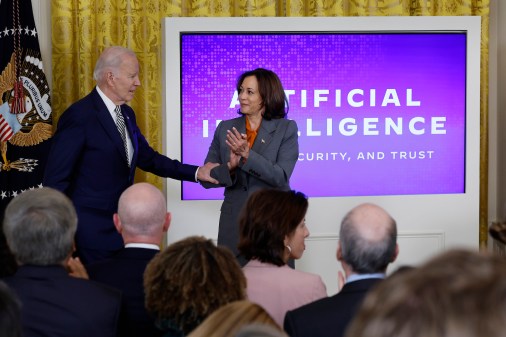The U.S. government needs access to commercial technologies to drive innovation

The U.S. government has been a world leader in technology innovation, making the government work better on behalf of our citizens, and funding many of the breakthroughs in commercial technology that underpin our daily lives. However, as a growing share of technology investment is coming from the private sector, the federal government is failing to adopt the best technology available.
This is costing taxpayers dearly when the government tries to build technology products from scratch when the same thing exists off of the shelf, and the lengthy government procurement process means that those charged with keeping this country safe and delivering essential services are using obsolete tools to do so.
That is why we are launching a new organization that will advocate on behalf of the nation’s most innovative technology companies and startups who are looking to do business with the federal government.
The Alliance for Commercial Technology in Government will advocate for its members in Washington, D.C., to ensure that the United States leverages commercial technologies to accelerate progress and enhance the lives of all Americans.
Many of the best, most innovative technologies are developed in the private sector with private capital. But with the time-consuming and costly nature of entering the federal market and with rules requiring consideration of existing off-the-shelf products being routinely ignored; our own government acquisition system is a barrier to progress and innovation. Based on the timelines and scale of many government acquisition programs, a small technology startup has no chance of entering the government marketplace on its own.
These barriers lead to the best available technology in the private sector only being purchased by the private sector and available to our adversaries, while the U.S. government is left with outdated and expensive products specifically designed only for government use, often incompatible with the technology products that tech-savvy employees would use every day outside of government.
I saw this personally as a government employee at the Pentagon in tasks as simple as collaborating with colleagues on documents. Our solutions were limited to emailing Microsoft Word documents with a naming convention for version control and typing messages on BlackBerries. We were using outdated technology to make policies such as the Third Offset Strategy, which was intended to give the U.S. military a long-term strategic advantage over our adversaries based on the adoption of cutting-edge technology. Fortunately, those policies generated some success. New organizations such as the Defense Innovation Unit were born out of that effort, an organization tasked with breaking down acquisition barriers to cutting-edge technology. We will work to amplify the successes the government has achieved and make easy access to government contracts the norm and not the exception.
The Alliance aims to help everyone by solving these challenges and transforming the federal government into an accessible marketplace for all technology companies, especially small companies and startups.
The Alliance has four main policy priorities it intends to tackle:
- First, there must be increased and unrestricted funds for innovation and technology purchases and contracts.
- Second, requirements for commercial off-the-shelf acquisitions must be incentivized and enforced.
- Third, the Small Business Innovation Research (SBIR) program must be modernized to maximize commercial transition.
- Fourth, security clearance and compliance must be reformed with shortened timelines, reduced costs, and improved access.
Significant progress on these four priorities would revolutionize the entire federal marketplace to be more accessible to startups and the entire commercial technology ecosystem, which will lead to much-needed modernization of our government’s technology infrastructure.
America was built on startups and small businesses; it is time the federal government creates a more accessible marketplace for commercial technology. Advocating for policies that can improve our government services and maintain our nation’s competitive advantage is long overdue. The Alliance will be the new voice to help Washington bring the best technology to the government.
David Vorland is the Executive Director of The Alliance for Commercial Technology in Government, a non-profit advocacy organization. Previously, he worked in the Office of the Secretary of Defense from 2009 to 2017.






